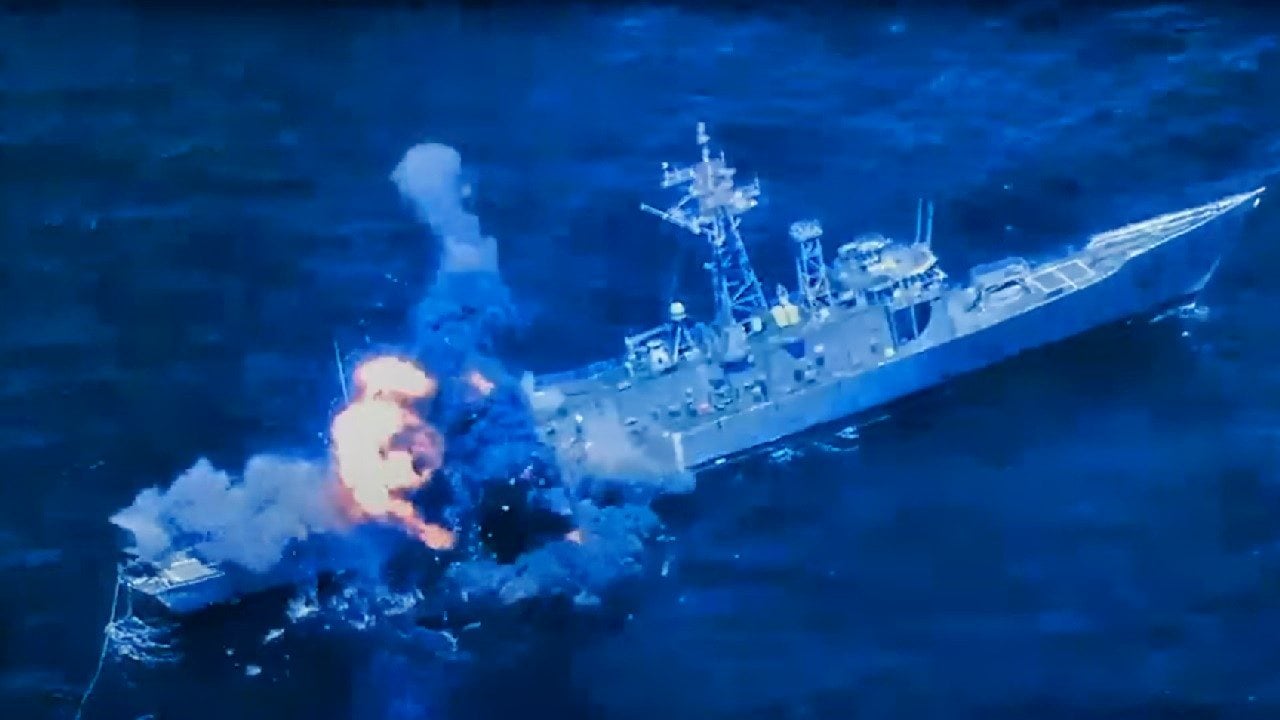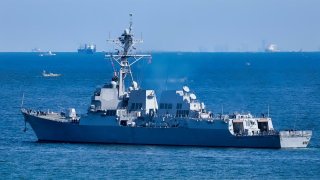The U.S. Navy Has Missile Drama
The revolution in naval warfare continues. In fact, the revolution has gone into overdrive in this age of inexpensive, plentiful, lethal drones and guided missiles.
The other two are more technical, open-ended, and uncertain in outlook. Three, rebuild the U.S. defense-industrial base, replicating the manufacturing prowess that mass-produced the matériel necessary to prevail in two world wars and the Cold War. The Pentagon issued a paper strategy just last month. Now let’s execute. With resolve and urgency.

And four, correct the lopsided cost-exchange ratio between cheap threats and pricey defenses by deploying “soft-kill” hardware, software, and doctrine. Scoring a “hard kill” means physically destroying an evasive, fast-moving hostile weapon. That’s what Gravely did, albeit at pucker-factor range. Maneuvering a bullet to hit another bullet at a distance is technologically demanding and thus expensive. By contrast, a soft kill defeats that weapon’s purpose—the purpose being striking a U.S. Navy or friendly warship—without necessarily destroying it. Electronic warfare, directed-energy microwave and laser weapons, and other approaches that don’t require defenders to hit a bullet with a bullet promise to alleviate the cost of warding off cruise- and ballistic-missile threats. Each engagement is inexpensive. Soft-kill methods promise shipboard defense on the cheap—if they live up to their billing.
Whether they will remains an open question. Not every engineering project pans out as hoped, or comes to fruition on the desired timetable. It may be that directed energy in particular will always remain the wonder weapon of the future.
In short, industrial and engineering woes take time to fix, while a renaissance in strategic thinking and alliance diplomacy could yield swift results if U.S. leaders apply themselves to it. These are human problems; people can change in a hurry if convinced it’s urgent to do so. Let’s work all of these lines of effort while acknowledging the limits of the possible.
Preserving the international order demands a team effort. It’s high time to recruit new teammates.
About the Author: Dr. James Holmes
Dr. James Holmes is J. C. Wylie Chair of Maritime Strategy at the Naval War College and a Nonresident Fellow at the University of Georgia School of Public and International Affairs. The views voiced here are his alone.


